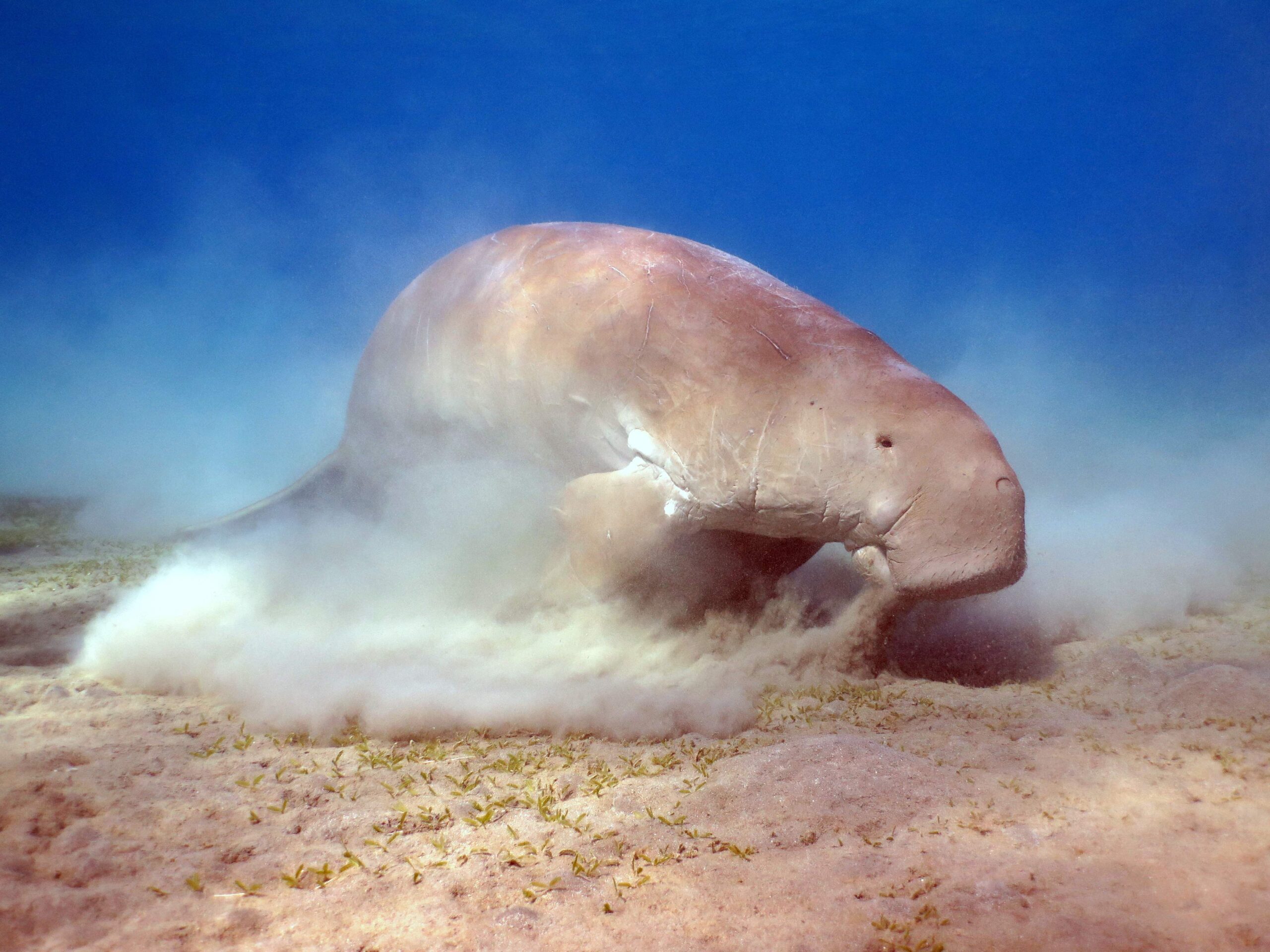For Immediate Release, May 6, 2020
| Contact: | Annalisa Tuel, Advocacy & Policy Manager, atuel@seaturtles.org |
Court Rules Expanding Military Base Does Not Threaten Endangered Dugongs
Today Turtle Island Restoration Network’s 17-year legal battle with the U.S. Department of Defense came to a close today when the 9th Circuit Court of Appeals ruled the agency could move forward with expanding a U.S. military air base in Okinawa, Japan.
The planned expansion involves filling in and paving over hundreds of acres of rich coral and seagrass at Henoko Bay, the last remaining habitat for dugongs, a critically endangered relative of the manatee that holds a central place in the culture of Okinawa.
“The court’s decision is truly tragic for all involved,” said Policy & Advocacy Manager Annalisa Batanides Tuel. “There may be as few as 24 of these animals left in the world, but because of this decision, there may not be Okinawa dugongs on Earth for much longer.”
The Department of Defense’s controversial plans have been challenged by TIRN, the Center for Biological Diversity, other conservation groups and residents of Okinawa since 2003 for failing to comply with the U.S. National Historic Preservation Act. Under the Act, American officials must avoid or mitigate harm to places or things of cultural significance to another country.
The Okinawa dugong is listed as an object of national cultural significance under Japan’s Law for the Protection of Cultural Properties, and is celebrated as “sirens” that bring friendly warnings of tsunamis. For years many locals have protested and opposed the base expansion plan for Okinawa, where 20 percent of the island is already occupied by the U.S. military.
In 1997, it was estimated that there may have been as few as 50 Okinawa dugongs left in the world; more recent surveys have only been able to conclude that at least three dugongs remain in Okinawa. Our lawsuit alleged that the Department of Defense did not have accurate baseline biological data necessary to make a reliable determination of their project’s effects on the dugong, did not consider the full range of impacts of the facility on the dugong, and that their ultimate conclusion of “no adverse effect” is contradicted by all science on the record.
In its final decision, the court absurdly decided that the Department of Defense was adequate in ignoring all recent scientific data we attempted to provide the agency, stating that the review of their very limited, dated information and willful ignorance of decades of showing the impending extinction of a species—that is both ecologically important and culturally significant to the Okinawan people—was appropriate, because it is in the name of “national security.”
“…there was no data suggesting that the construction and operation of the new base would further fragment the dugong population or interfere with existing dugong travel routes to their habitats and/or potential feeding groups,” the ruling states. “Accordingly, the Department’s failure to consider these factors was not unreasonable.”
This ruling is not only devastating for the dugong, but it sets a terrifying precedent: if a government agency willfully ignores data suggesting that their project could lead to a species’ extinction, they may still move forward with that project. In other words, the judge contends that if an agency ignores data that would indicate negative impacts on a species, and the lack of such data benefits their end result, the agency may go ahead and do so.




